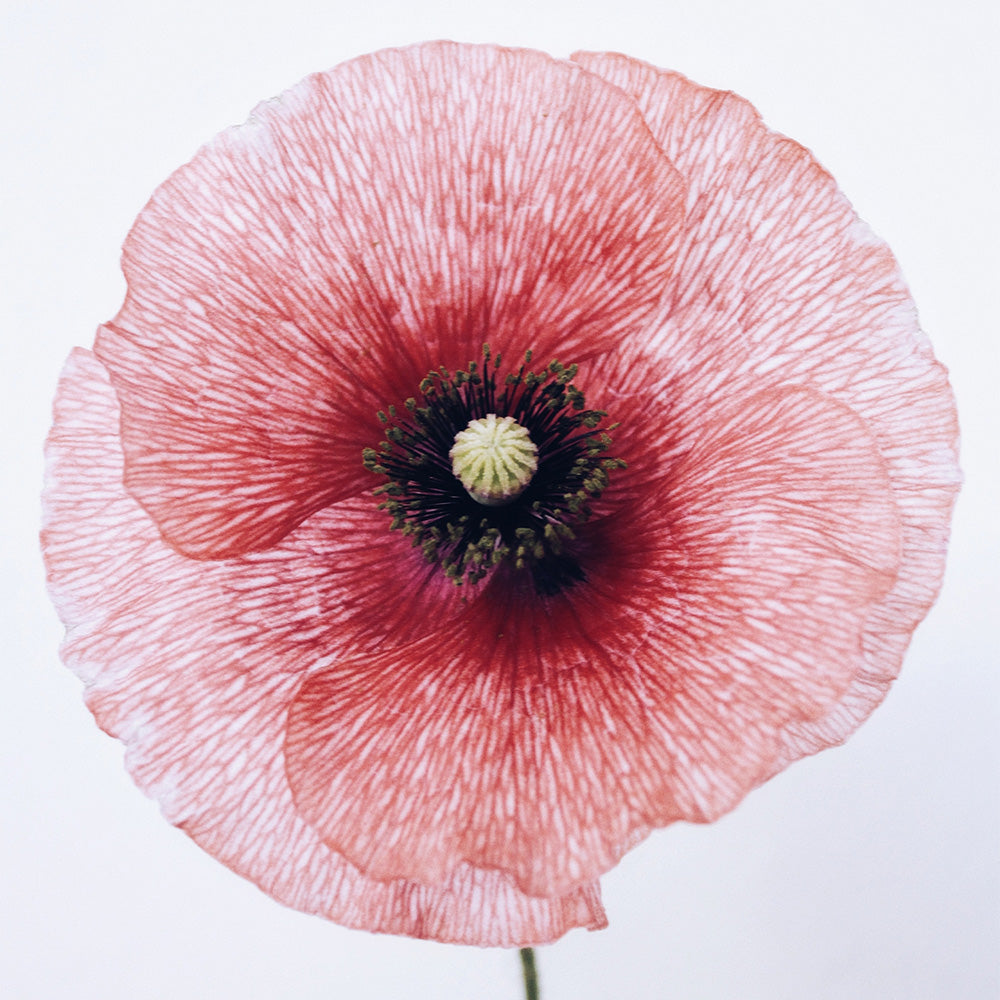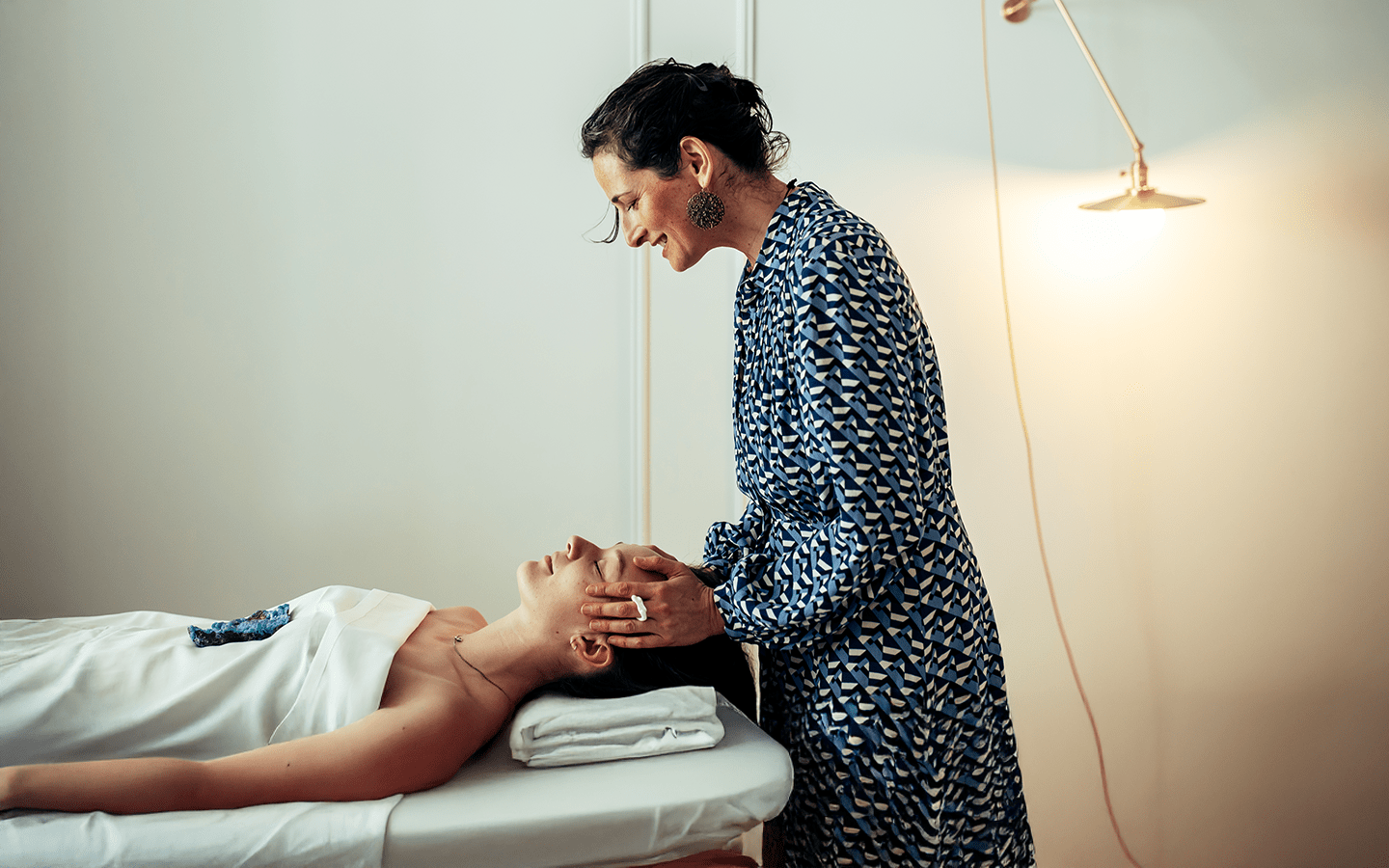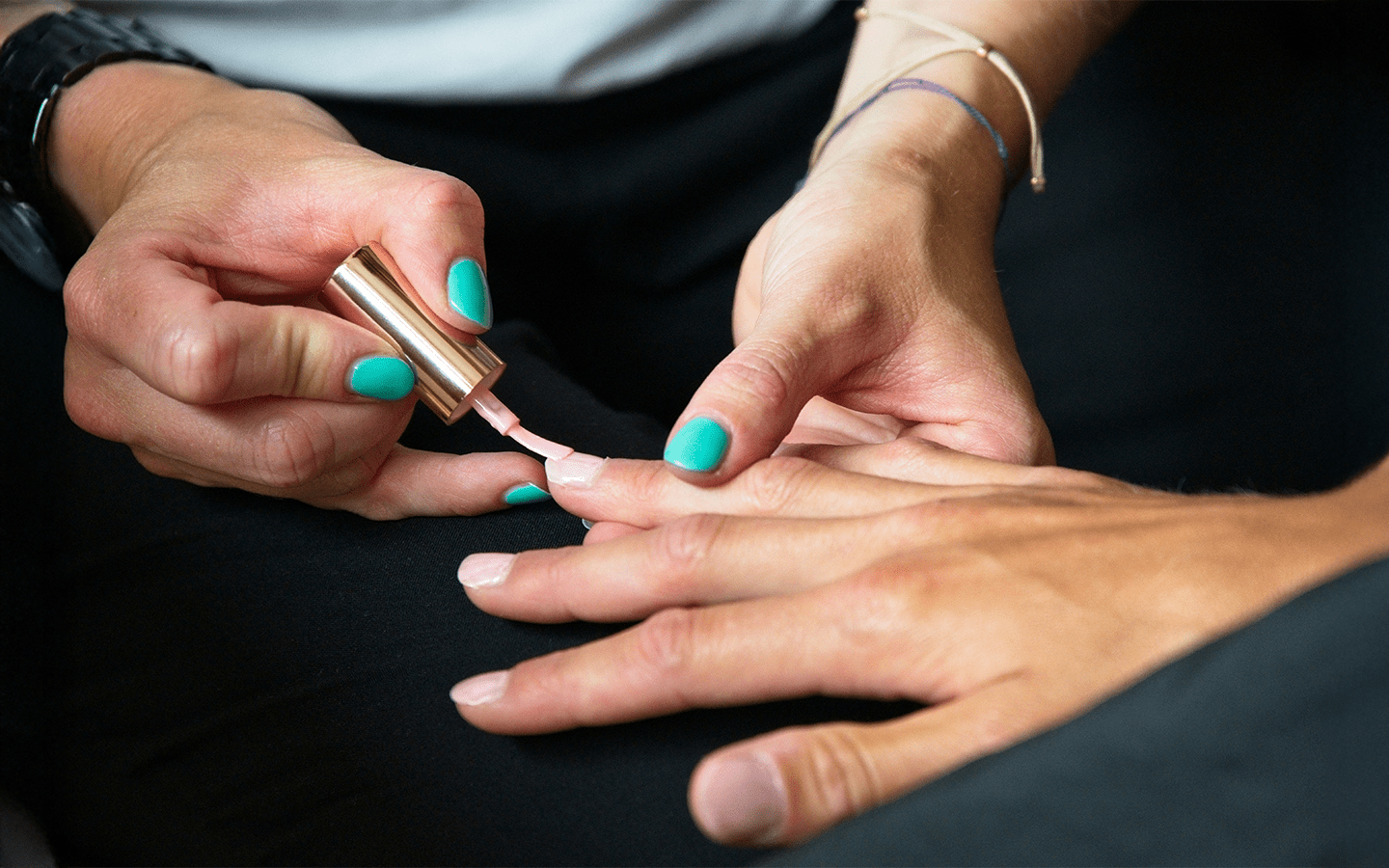
Healthy Habits for Menstrual Cycle Wellness
Menstrual health is an essential component of our overall well-being. Paying attention to it can help us in so many ways, having nothing to do with getting or not getting pregnant. It can empower us to take charge to enhance our overall quality of life. In this blog, we will explore healthy habits for menstrual cycle wellness, including the role of hormones, phases of the menstrual cycle, the impact of lifestyle on menstrual health, diet and nutrition, cycle syncing, achieving hormonal balance, and the benefits of acupuncture to feel your best throughout your whole cycle and beyond.
Understanding the Menstrual Cycle
The menstrual cycle, on average, lasts around 28 days, although the length can vary from woman to woman. It consists of several phases, each with hormonal changes and unique characteristics. Understanding the menstrual cycle is crucial for recognizing the changes in energy levels, mood, and overall health throughout the month. The menstrual phase marks the beginning of the cycle when the uterine lining sheds, leading to vaginal bleeding. The ovulation phase occurs around the middle of the cycle when the ovary releases an egg. Finally, the luteal phase prepares the body for a possible pregnancy. Familiarizing yourself with the phases of the menstrual cycle can help you recognize which phase you're in and better understand what your body needs.
The Role of Hormones in the Menstrual Cycle
Hormones are pivotal in the menstrual cycle, influencing mood, energy levels, and overall health. The menstrual cycle is regulated by sex hormones, primarily estrogen and progesterone, which fluctuate throughout the month. During the follicular phase, which begins on the first day of your period, estrogen levels gradually rise, stimulating the uterine lining to thicken. This phase prepares the body for ovulation, the release of an egg, which occurs during the ovulatory phase. After ovulation, progesterone levels increase, maintaining the uterine lining and preparing the body for potential pregnancy. If pregnancy doesn't happen, hormone levels drop, leading to menstruation and the start of a new cycle.
Phases of the Menstrual Cycle
The menstrual cycle is comprised of several phases, each with hormonal changes and distinct characteristics. Let's take a closer look at the stages of the menstrual cycle:
- Follicular phase: The follicular phase begins on the first day of your period and typically lasts around 7 to 10 days. During this phase, follicle-stimulating hormone (FSH) signals the ovaries to develop follicles, each containing an egg. Estrogen levels gradually rise, stimulating the uterine lining to thicken, preparing the body for potential pregnancy.
- Ovulatory phase: Occurring around the middle of the menstrual cycle, the ovulatory phase is when the ovary releases a mature egg. Estrogen levels peak, triggering luteinizing hormone (LH) to facilitate ovulation. This phase lasts only about 24 to 48 hours, during which the egg can be fertilized by sperm.
- Luteal phase: Following ovulation, the luteal phase begins. The ruptured follicle, known as the corpus luteum, produces progesterone, causing the uterine lining to thicken further. Progesterone levels increase, supporting the potential implantation of a fertilized egg.
- Menstruation phase: If fertilization and implantation do not occur, hormone levels, including estrogen and progesterone, decrease, triggering the shedding of the uterine lining. This phase, commonly known as menstruation, marks the start of a new menstrual cycle.
The Impact of Lifestyle on Menstrual Health
How we live our lives, including our choices regarding diet, exercise, stress management, and other aspects of our lifestyle, can significantly impact menstrual health. This section will explore the influence of lifestyle choices on menstrual health, emphasizing the importance of adopting healthy habits that support reproductive health and overall well-being.
The Influence of Stress on Menstrual Health
Stress is an unavoidable part of life, but excessive or chronic stress can have a detrimental effect on menstrual health. Stress triggers the release of cortisol, a hormone that, when elevated, can disrupt the delicate balance of reproductive hormones, such as estrogen and progesterone, in the menstrual cycle. This hormonal imbalance may lead to irregular or missed periods, mood changes, and increased premenstrual syndrome (PMS) symptoms.
Physical Exercise and Menstrual Health
Regular physical exercise is vital in maintaining overall health, including menstrual health. Engaging in physical activity not only improves cardiovascular health, strength, and flexibility but also positively impacts menstrual well-being. Here are some key points regarding the influence of exercise on menstrual health:
- Exercise and hormone levels: Regular exercise can help balance hormone levels, leading to more regular menstrual cycles. It can also alleviate menstrual cramps and reduce the severity of PMS symptoms.
- Timing of exercise: While exercise is beneficial throughout the menstrual cycle, focusing on the type and intensity of exercise during specific phases can optimize energy levels and exercise performance. For example, during the follicular phase, when estrogen levels rise, women may experience increased endurance, making it an ideal time for high-intensity workouts. During ovulation, women get a hit of increased testosterone, so it’s an excellent time for strength training. During the luteal phase, exercise routines emphasizing relaxation, such as yoga or gentle stretching, can help alleviate symptoms like breast tenderness and fatigue.
- The role of energy levels: Paying attention to energy levels is essential for physical exercise and menstrual health. Women may find that their energy levels fluctuate throughout the menstrual cycle. Adjusting the type and intensity of exercise based on energy levels can help prevent overexertion and support overall menstrual health.
- By incorporating regular physical exercise into your routine while considering the phase of your cycle and your energy levels, you can support menstrual health, optimize exercise performance, and enhance your overall well-being.
Diet and Menstrual Wellness
The food we nourish our bodies with is crucial to menstrual wellness. A well-balanced diet, rich in essential nutrients, can support hormonal balance, regulate blood sugar levels, and mitigate menstrual symptoms. In this section, we will explore the importance of diet for menstrual wellness, tips for nutrition during the different phases of the menstrual cycle and the role of essential vitamins and minerals.
Nutrition for Different Phases of Menstrual Cycle
Understanding the changes during the menstrual cycle's different phases can guide your nutritional choices and support your body's needs. Here are some key points to consider regarding nutrition during each phase of the menstrual cycle:
- Follicular phase: During the follicular phase, focus on adding protein, non-starchy vegetables, and healthy fats to your diet. These foods provide energy, fiber, and nutrients to support the body's needs as hormone levels gradually rise.
- Ovulatory phase: As estrogen levels peak during the ovulatory phase, you may experience increased energy levels and exercise performance. Incorporating nutrient-dense foods and healthy fats can support your body's needs and optimize ovulation.
- Luteal phase: The luteal phase is associated with increased progesterone levels, which may lead to food cravings and changes in appetite. Incorporating whole grains, starchy veggies like squash and sweet potatoes, lean proteins, and healthy fats like in avocados, nuts, and seeds can help alleviate cravings and support overall menstrual wellness.
- Menstrual phase: During the menstrual phase, the body may need additional iron due to blood loss. Foods rich in iron, such as dark leafy greens, legumes, and lean meats, can help replenish iron stores and support energy levels.
- You can optimize your nutritional intake and promote menstrual wellness by tailoring your diet to the phase of your menstrual cycle and your body's needs.
Essential Vitamins and Minerals for Menstrual Health
Ensuring an adequate intake of essential vitamins and minerals is crucial for supporting menstrual health and hormone balance. Here are some key vitamins and minerals that play a vital role in menstrual health:
- Vitamin D: Vitamin D has been linked to menstrual health and hormonal balance. It helps the body absorb calcium, supports the immune system, and improves overall well-being. Good food sources of vitamin D include fatty fish, eggs, and fortified dairy products. Spending time outdoors and getting natural sunlight exposure is also beneficial.
- Magnesium: Magnesium is involved in hundreds of biochemical reactions in the body, including hormone regulation and muscle relaxation. During the luteal phase, magnesium-rich foods, such as dark chocolate, nuts, and leafy greens, can help alleviate menstrual cramps and support overall menstrual health.
- B vitamins: B vitamins, including B6, B12, and folate, are essential for energy production, hormone synthesis, and the production of healthy red blood cells. Whole grains, green leafy vegetables, legumes, and lean meats are good food sources of B vitamins, supporting menstrual health and energy levels.
- Iron: Iron is crucial for healthy blood production, especially during menstruation when blood loss occurs. Iron-rich foods, such as lean meats, dark leafy greens, and legumes, can help prevent iron deficiency anemia and support the body's needs during the menstrual cycle.
- By including these essential vitamins and minerals in your diet, you can support menstrual health, hormone balance, and the health of your uterine lining.
Cycle Syncing for Better Menstrual Health
Cycle syncing involves adapting your lifestyle, including your diet, exercise, and self-care practices, to the different phases of your menstrual cycle. By aligning your activities with the hormonal changes throughout the month, you can optimize your energy levels, mood, and overall health. In the next sections, we will explore the concept of cycle syncing, its benefits, and how to start incorporating it into your life to support your menstrual health and overall well-being.
What is Cycle Syncing?
Cycle syncing involves tailoring your lifestyle habits, such as diet, exercise, and self-care practices, to the specific needs of your menstrual cycle phase. By understanding the hormonal changes that occur during each phase, you can make informed choices to support your reproductive health and overall well-being.
The menstrual cycle follows a distinct pattern of hormonal changes, which impact energy levels, mood, and physical symptoms. By syncing your lifestyle with your cycle, you can optimize your energy, productivity, and overall health at each phase.
Cycle syncing recognizes that women have different needs during the follicular, ovulatory, luteal, and menstrual phases of the menstrual cycle. By adapting your activities and diet to align with these hormonal changes, you can support your body's natural rhythms and promote menstrual health.
Benefits of Cycle Syncing
Cycle syncing offers several benefits for menstrual health, mood, and overall well-being. Here are some of the potential advantages of incorporating cycle syncing into your life:
- Improved menstrual health: By aligning your activities and diet with the changing hormonal needs of your cycle, you can support menstrual health and reduce symptoms such as menstrual cramps, mood swings, and fatigue.
- Enhanced mood stability: Cycle syncing can help stabilize mood swings and promote emotional well-being by optimizing nutrient intake and self-care practices throughout the menstrual cycle.
- Better energy levels: Recognizing the body's energy fluctuations during the menstrual cycle and adjusting activities accordingly can help optimize energy levels, leading to increased productivity and overall well-being.
- Support for overall health: By prioritizing your menstrual health, you contribute to your overall health and well-being. The practices associated with cycle syncing, such as mindful eating, stress management, and exercise, have positive effects on various aspects of your health beyond the menstrual cycle.
How to Start Cycle Syncing
Incorporating cycle syncing into your lifestyle is a gradual process that begins with understanding your cycle, tracking your symptoms, and adapting your habits accordingly. Here are some steps to help you get started with cycle syncing:
- Track your menstrual cycle: Start by tracking the length of your cycle, the first day of your period, and any symptoms or changes you notice during each phase. Charting your cycle can help you identify patterns and understand the length of each phase.
- Understand the phases of your menstrual cycle: Educate yourself about the different phases of your menstrual cycle, including the follicular, ovulatory, luteal, and menstrual phases. This understanding will guide you in recognizing the specific needs of your body during each phase.
- Adjust your diet and exercise routines: Based on the phase of your cycle, make dietary adjustments that support your body's energy levels and nutritional needs. Incorporate cycle-supportive foods, such as whole grains, leafy greens, healthy fats, and lean proteins, into your meals. Consider adjusting your exercise routines to align with the hormonal changes of each phase, focusing on activities that enhance energy levels and overall well-being.
Achieving Hormonal Balance for Menstrual Wellness
Hormonal balance is fundamental to menstrual wellness and overall well-being. Achieving and maintaining hormonal balance helps regulate menstrual cycle regularity, energy levels, mood, and overall health. The next section will explore tips for maintaining hormonal balance, supporting menstrual health, and optimizing overall well-being.
Tips for Maintaining Hormonal Balance
Maintaining hormonal balance is key to menstrual wellness, overall reproductive health, and overall well-being. Here are some tips to help you achieve and maintain hormonal balance:
- Mindful eating: Pay attention to your nutrition and focus on whole, nourishing foods. Incorporate hormone-balancing foods, such as those rich in healthy fats, fiber, and antioxidants, into your diet. Consider reducing the intake of processed foods, sugar, and caffeine, which can disrupt hormonal balance.
- Stress management: Chronic stress can throw hormones out of balance. Engage in stress management techniques, such as meditation, deep breathing exercises, or engaging in hobbies that bring you joy, to support healthy hormone levels.
- Sleep hygiene: Prioritize quality sleep, as it plays a crucial role in hormone regulation and overall well-being. Aim for 7-9 hours of uninterrupted sleep per night, establish a regular sleep routine, and create a restful sleep environment.
- Exercise regularly: Regular physical exercise supports hormonal balance and overall well-being. Engage in moderate-intensity activities, such as walking, swimming, or yoga, to regulate hormone levels and support menstrual health.
- By incorporating these tips into your lifestyle, you can support hormonal balance, menstrual wellness, and overall health.
Can Acupuncture Help in Enhancing Menstrual Wellness?
Acupuncture, an ancient Chinese practice, has gained popularity as a complementary therapy for various health conditions, including menstrual wellness. This holistic approach involves the insertion of thin, sterile needles into specific points on the body to stimulate energy flow and promote overall well-being. While research on the efficacy of acupuncture specifically for menstrual health is ongoing, most women report positive effects in managing hormonal changes, reducing PMS symptoms, and alleviating menstrual cramps. Consulting a registered acupuncturist may provide insights into the potential benefits of acupuncture for menstrual health and overall well-being.
Conclusion
In conclusion, taking care of your menstrual cycle wellness is essential for your overall health and well-being. Understanding how your hormones fluctuate throughout the different phases of your cycle can help you make informed decisions about your lifestyle choices. Managing stress, engaging in regular physical exercise, and maintaining a balanced diet rich in essential vitamins and minerals are all key factors in promoting optimal menstrual health. Additionally, cycle syncing can be a beneficial practice that aligns your activities and self-care practices with the different phases of your cycle. By prioritizing your menstrual health, you can not only improve your fertility but also achieve hormonal balance and enhance your overall well-being. Remember to consult with healthcare professionals for personalized advice and guidance on achieving and maintaining menstrual wellness.













